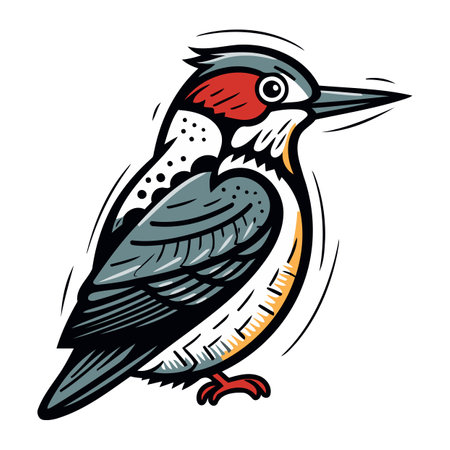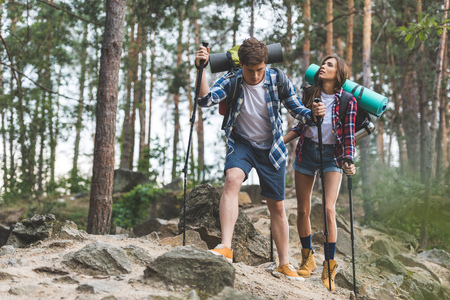1. Understanding the Right to Forage in the UK
Wild foraging has deep roots in British culture, but its legalities are nuanced and region-specific. To forage legally, it’s essential to grasp the frameworks that govern access to wild plants and fungi across England, Scotland, Wales, and Northern Ireland.
Legal Frameworks Across the UK
The right to forage is not absolute and differs significantly between the nations of the UK. In England and Wales, the main piece of legislation is the Wildlife and Countryside Act 1981. This law generally allows people to pick wild flowers, fruit, nuts, and fungi for personal use, provided they have lawful access to the land and do not uproot entire plants without permission. However, some species are protected and must not be disturbed under any circumstance.
Scotland: The Right to Roam
Scotland stands apart with its Land Reform (Scotland) Act 2003, which enshrines a broad ‘right to roam’. This gives everyone access to most land and inland water for recreational purposes, including foraging, as long as it’s done responsibly. There are exceptions—such as private gardens or land under crops—but overall, Scottish law is notably more permissive than elsewhere in the UK.
Northern Ireland: A More Restrictive Landscape
Northern Ireland is more restrictive; there is no equivalent ‘right to roam’ legislation. Foragers must have explicit permission from landowners before collecting wild food on private land. Public rights of way exist but do not automatically confer foraging rights.
Historical Context: From Common Land to Conservation
The tradition of gathering food from the wild dates back centuries in Britain, when much land was common or unenclosed. Over time, privatisation of land changed public access rights dramatically. Today’s laws reflect a balance between respecting private property and encouraging responsible enjoyment of nature. Understanding this context helps modern foragers appreciate both their privileges and limitations under current legislation.
2. Identifying Where You Can Legally Forage
Understanding where you can legally forage is essential for anyone wishing to enjoy wild foods in the UK while respecting both the law and local communities. The landscape of foraging rights is shaped by a patchwork of land designations, each with its own set of rules and expectations. Below, we break down the main types of land and offer practical guidance for responsible foraging.
Distinguishing Between Land Types
| Land Type | Foraging Rights | Key Considerations |
|---|---|---|
| Public Land (e.g., highways, footpaths) | Permitted, usually under the “right to roam” (England & Wales) | No digging or uprooting; check for local by-laws |
| Private Land | Not allowed without explicit permission from the landowner | Always seek written consent; trespassing can be prosecuted |
| Common Land | Often permitted for personal use, but not for commercial purposes | Check local regulations; avoid damaging habitats |
| National Parks & Nature Reserves | Varies: some allow limited foraging, others prohibit entirely | Consult park authority websites and signage; respect protected species and areas |
Navigating Protected Areas and Local By-Laws
The UK boasts a network of National Parks, Sites of Special Scientific Interest (SSSIs), and Local Nature Reserves. Many of these spaces are safeguarded due to their ecological importance. While some may permit light foraging (such as berry picking), others enforce strict prohibitions to protect vulnerable habitats or species. Always look out for on-site information boards and consult local council or park websites before collecting anything.
Seeking Permission from Landowners
If you wish to forage on private land, it is crucial to obtain clear permission from the landowner—ideally in writing. Be transparent about what you intend to gather and when. Many farmers and estate managers appreciate polite requests, especially if you demonstrate awareness of sustainable harvesting practices. Building positive relationships with landowners not only upholds legal requirements but also fosters trust within rural communities.
Practical Tips for Responsible Foraging:
- Carry proof of any permissions granted when foraging off public paths.
- Respect fences, gates, and any signage indicating restricted access.
- If unsure about land status, check the government’s Magic Map or local authority resources.
The legal landscape can be complex, but careful research and respectful communication will help ensure your wild food adventures remain both lawful and welcome wherever you roam in the UK.

3. What You Can and Cannot Forage
Foraging in the UK offers a wealth of opportunities for those keen to connect with nature, but it’s essential to understand which wild foods can be legally gathered and where the boundaries lie. The law generally permits the collection of certain wild plants, fungi, fruits, and seaweeds for personal use, provided you respect both private property rights and broader conservation efforts.
Permitted Wild Foods for Personal Use
Under the Wildlife and Countryside Act 1981, you are allowed to pick “the four Fs” – fruit, foliage, flowers, and fungi – as long as it is for personal consumption and not for commercial gain. This means you can forage blackberries, elderflowers, nettles, wild garlic, chestnuts, sloes, some mushrooms (such as field mushrooms or chanterelles), and common edible seaweeds like bladderwrack from public land or footpaths. However, always ensure you have the landowner’s permission if you wish to forage on private property.
Legal Restrictions and Conservation Measures
Certain areas such as National Nature Reserves, Sites of Special Scientific Interest (SSSIs), and protected parks may have additional restrictions or outright bans on foraging to protect sensitive habitats. Always check local signage or council websites before you begin collecting in these areas. Additionally, many rare or endangered species are strictly protected; picking or disturbing them is illegal regardless of location.
Endangered Species Protection
The law prohibits the uprooting of any wild plant without explicit permission from the landowner. Several species—including bluebells, wild orchids, and rare fungi—are listed under Schedule 8 of the Wildlife and Countryside Act and must never be picked. Harvesting these can result in prosecution.
Biodiversity Considerations
Foragers also carry an ethical responsibility to preserve natural habitats. Sustainable foraging practices recommend taking only what you need, leaving plenty behind for wildlife and plant regeneration. Avoid over-harvesting any one area or species to help maintain biodiversity across the countryside.
In summary, responsible foraging in the UK involves knowing which wild foods are fair game for personal use, understanding legal limitations designed to protect vulnerable species and habitats, and always prioritising sustainable practices that support Britain’s rich natural heritage.
4. Foraging Ethics: Best Practice and Considerate Gathering
Foraging in the UK is not just about finding edible treasures—its about doing so responsibly to ensure wild spaces continue to thrive for generations to come. Practising good foraging ethics means respecting both nature and the rights of others who share these landscapes.
Sustainable Harvesting
Sustainable harvesting is at the core of ethical foraging. The principle is simple: never take more than you need, and always leave enough behind for plants and fungi to regenerate. Overharvesting can damage delicate ecosystems, reduce biodiversity, and even threaten the survival of rare species. Adhering to a “one-for-the-pot” mentality helps maintain healthy populations and ensures food sources for wildlife.
| Best Practice | Why It Matters |
|---|---|
| Take only what you need | Prevents depletion and allows regrowth |
| Harvest less than one-third from any patch | Keeps plant populations viable and productive |
| Avoid uprooting entire plants or fungi | Protects future growth cycles and biodiversity |
Respect for Wildlife Habitats
Wild places are homes for countless creatures, not just sources of food for people. Avoid disturbing nests, dens, or other animal habitats while gathering. Stick to established paths where possible, and be mindful of sensitive environments such as riverbanks or ancient woodlands.
Leave No Trace Principle
The “leave no trace” ethic goes hand-in-hand with responsible foraging. Always remove any litter, avoid trampling vegetation unnecessarily, and do not disturb natural features like fallen logs or stones which provide shelter for small animals.
Quick Reference: Forager’s Code of Conduct
| Action | Ethical Approach |
|---|---|
| Litter management | Take all rubbish home; collect any you find on your walk |
| Wildlife disturbance | Observe quietly; do not interfere with animals or their habitats |
| Plant care | Snip rather than pull; avoid damaging roots wherever possible |
| Sharing resources | Leave enough for others—both humans and wildlife—to enjoy and depend on |
Cultivating an ethical approach when foraging helps preserve Britain’s rich natural heritage. By following best practices—taking only what you need, respecting habitats, leaving no trace, and thinking of future growth—you contribute positively to local biodiversity and foster a respectful relationship with the countryside.
5. Staying Safe and Responsible While Foraging
Foraging in the UK’s countryside offers a rewarding connection to nature, but it comes with clear safety and ethical responsibilities. To forage safely and legally, it is crucial to follow established guidelines and act with care for both your wellbeing and the environment.
Correct Plant Identification
One of the most essential aspects of safe foraging is accurate plant identification. Many edible wild plants have toxic lookalikes—mistakes can lead to serious illness or worse. Invest time in using reputable field guides, attend local foraging workshops, or connect with knowledgeable groups before consuming anything unfamiliar. When in doubt, always err on the side of caution and leave the specimen untouched.
Avoiding Toxicity
The UK is home to various poisonous plants and fungi, such as deadly nightshade, hemlock, and certain Amanita mushrooms. Even experienced foragers take extra care when collecting new species. If you are unsure about a plant’s safety, avoid tasting or handling it unnecessarily, and wash your hands thoroughly after contact. Remember that some plants can cause skin irritation even without ingestion.
Understanding Local Wildlife Concerns
Foraging responsibly also means being mindful of wildlife and their habitats. Avoid disturbing nesting birds, trampling delicate undergrowth, or stripping entire patches of a particular plant—these actions can disrupt local ecosystems. Stick to established paths where possible and harvest only small amounts, ensuring plenty remains for animals and regeneration.
Acting in Accordance with the Countryside Code
The Countryside Code is fundamental guidance for anyone enjoying rural spaces in the UK. Key principles include respecting other people, protecting the natural environment, and leaving no trace of your visit. Always seek permission if required, especially on private land, close gates behind you, and take all litter away. Adhering to these rules not only ensures your own safety but helps preserve access for everyone in future.
Summary
Ultimately, safe and responsible foraging is about preparation, respect, and stewardship. By identifying plants correctly, avoiding toxins, considering wildlife impact, and following the Countryside Code, you contribute to a sustainable tradition that benefits both people and nature across the UK.
6. Respecting the Community and UK Foraging Culture
Understanding the social context of foraging in the UK is just as important as knowing the law. While wild food has a long history in British culture, attitudes can vary from enthusiasm to concern, especially regarding countryside access and conservation. Therefore, it is essential to act with courtesy and sensitivity when foraging.
Insight into British Attitudes Towards Wild Food
Foraging is increasingly popular in Britain, seen by many as a wholesome way to reconnect with nature and local heritage. However, some landowners and rural communities may be cautious about outsiders picking wild plants or fungi, fearing damage to habitats or overharvesting. Being aware of these perspectives helps foster mutual respect.
Courtesy Towards Other Land Users
The British countryside is shared by walkers, farmers, conservationists, and recreational users. Always greet people politely and avoid blocking paths or gates. If you encounter livestock or working land, be discreet and cause minimal disturbance. Taking only what you need demonstrates respect for both nature and other foragers.
Handling Conflicts With Locals
If approached by locals or landowners questioning your activity, remain calm and friendly. Politely explain your intentions and knowledge of the law, showing willingness to leave if requested. Avoid confrontation; often a respectful conversation resolves misunderstandings.
Connecting With Community Groups and Experts
Joining local foraging groups or participating in guided walks not only builds practical knowledge but also strengthens community ties. Many areas have established networks where you can share experiences, learn about sustainable harvesting, and gain deeper insight into regional customs. Engaging with experienced foragers is invaluable for enjoying the countryside responsibly.
By embracing the community spirit of UK foraging culture—balancing legal rights with consideration for others—you will help preserve access to wild foods for everyone while ensuring that your own experiences remain positive and enriching.


